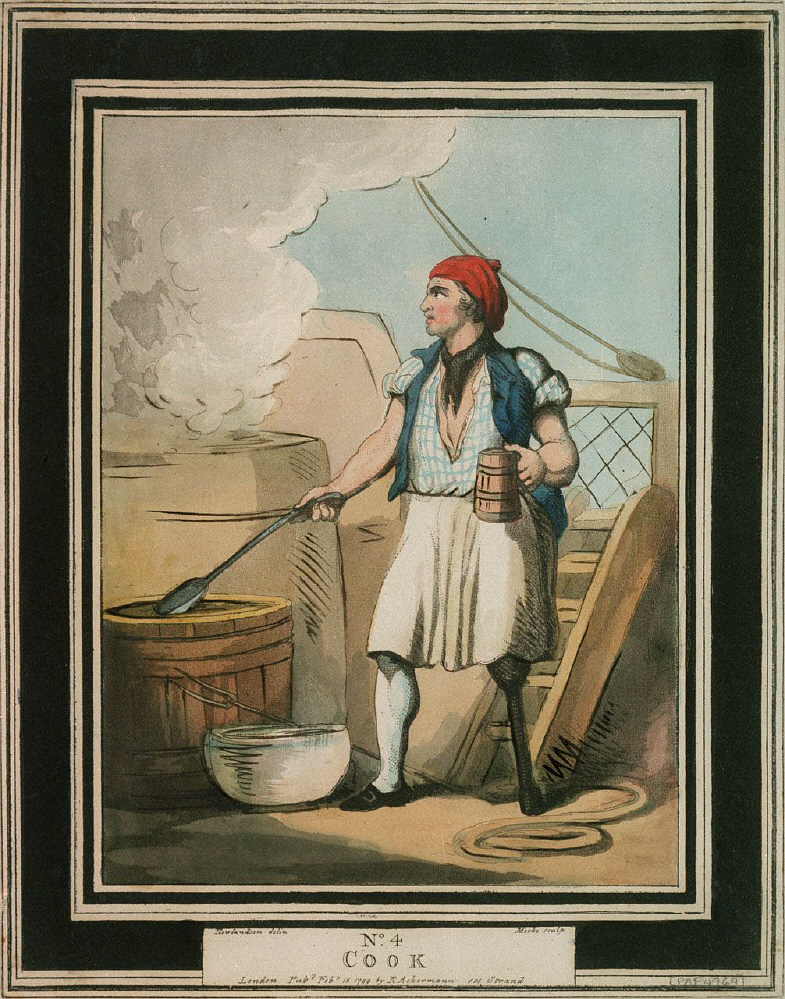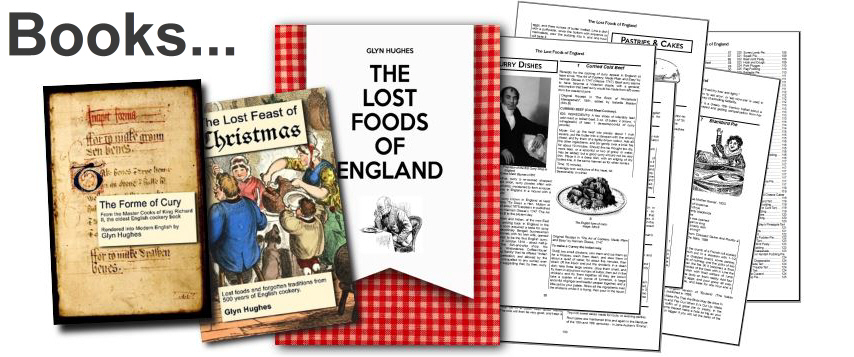

|
 The original Suffolk was one of the most famous cheeses of England. It was a very hard cows' milk cheese, possibly similar to Parmesan, the unique hardness and durability of which was celebrated, or decried, in poems, songs and jokes. It was written-about by Pepys and Johnson and was the official cheese of the Royal navy. It is no longer made, though other, more conventional, cheeses of the Edam or Cheddar type are currently (2013) produced in Suffolk. Our correspondent John Fisk (2022) recalls of life on the Suffolk coast that Suffolk Cheese was "Still known when my father was a boy in the 1920s and known in NE Suffolk as Suffolk Thump rather than Bang. Both doubtless from the noise you make hitting it on the table. Only palatable when toasted (ie melted) or grated, possibly akin to Parmesan. Allegedly made from skimmed milk and used only by the bottom of the social tree as the cheapest cheese than could stretch the furthest as a flavouring rather than a dish. I recall a saying that it could not be cut but might be carved."  Suffolk was the cheese of Nelson's Royal Navy The cheese ration was 4oz every other day The following receipt from Eaton 1822 shows that it was tightly pressed, broken up and pressed again.  Original Receipt in 'The Cook and Housekeeper's Dictionary' by Mary Eaton (Eaton 1822); Original Receipt in 'The Cook and Housekeeper's Dictionary' by Mary Eaton (Eaton 1822);SUFFOLK CHEESE. The curd is broken up in the whey, which is poured off as soon as the former has subsided. The remainder, with the curd, is put into a coarse strainer, left to cool, and is then pressed as tightly as possible. After this it is put into the vat, and set in a press to discharge the remaining whey. The curd is then taken out, broken again as finely as possible, salted, and returned to the press. Whatever it was, it was certainly hard, being described elsewhere as 'flinty' and remembered in the phrase "Hunger will break through stone walls and anything except a Suffolk cheese." Samuel Pepys says, in his diary for October 4th 1661, that "I found my wife vexed at her people for grumbling to eat Suffolk cheese", 17th and 18th century literature abounds in jokes about it, and the hard memory of it is preserved in more than one rhyme: Those that made me were uncivil In 'The Hampshire Chronicle' - Monday 19 December 1825; "As characteristic of Suffolk cheese, it said that a vessel once laden, one half with grindstones and the other half with the above commodity, on arriving at its destination it was found that the rats had consumed all the grindstones, but left the cheeses untouched." 'Suffolk words and phrases' by Edward Moor (1771-1848) (Moor 1823) says that the very lowest quality of Suffolk Cheese was known as 'Bang'. N. A. M. Rodger's anatomy of the Georgian Navy 'The Wooden World' tells us that "The Navy had always issued Suffolk Cheese, a thin, hard and durable variety, but practically inedible. There were frequent complaints against it, and in 1758 the decision was taken to switch to Cheshire and Gloucester Cheese". See: Skim Dick  |
|
MORE FROM Foods of England... Cookbooks ● Diary ● Index ● Magic Menu ● Random ● Really English? ● Timeline ● Donate ● English Service ● Food Map of England ● Lost Foods ● Accompaniments ● Biscuits ● Breads ● Cakes and Scones ● Cheeses ● Classic Meals ● Curry Dishes ● Dairy ● Drinks ● Egg Dishes ● Fish ● Fruit ● Fruits & Vegetables ● Game & Offal ● Meat & Meat Dishes ● Pastries and Pies ● Pot Meals ● Poultry ● Preserves & Jams ● Puddings & Sweets ● Sauces and Spicery ● Sausages ● Scones ● Soups ● Sweets and Toffee ● About ... ● Bookshop ● Email: editor@foodsofengland.co.uk COPYRIGHT and ALL RIGHTS RESERVED: © Glyn Hughes 2022 BUILT WITH WHIMBERRY |